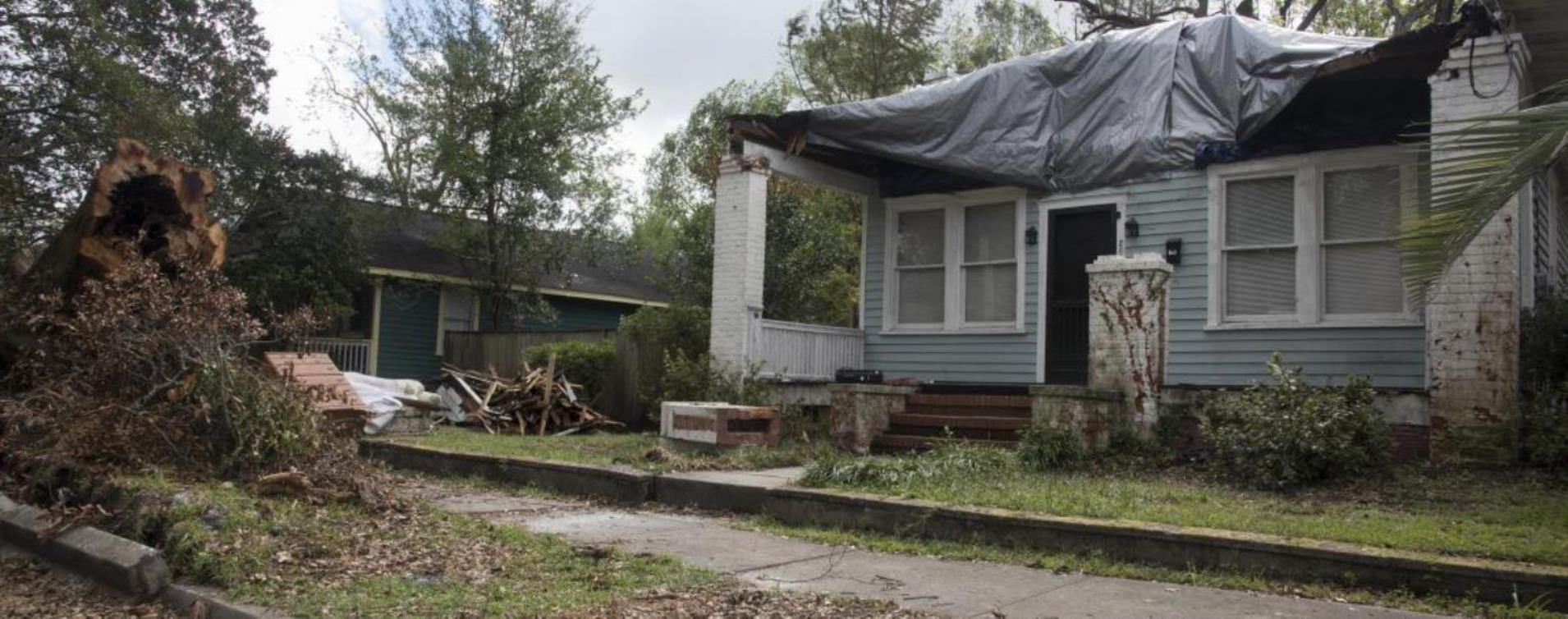Late August will mark one year since Hurricane Florence slammed ashore in the southeastern United States, killing more than 50 people and causing more than $24 billion in damage across four states. The Sierra Club helped raise funds for hurricane relief and recovery in North Carolina in the immediate aftermath of the storm -- together with the many partner agencies that the North Carolina Community Foundation supports. In all, the groups raised more than $2 million and have distributed $700,000 so far.
A key goal for distributing those funds, according to North Carolina Sierra Club deputy director Cynthia Satterfield, was reaching areas where assistance was most needed. “We looked for organizations with established hurricane-relief programs and the capacity to deliver on their promise to help those most in need,” she said. “We also sought out frontline organizations with which Sierra Club volunteers had a close relationship.”
The chapter’s vast volunteer network proved to be an excellent resource in determining where assistance was most needed. “We identified community leaders and front line organizations working on the ground to provide direct relief,” Satterfield explained. “With help from the national Sierra Club, we were able to make funds available to several of these groups and provide everything from tarps and cleaning supplies to baby formula.”
Satterfield said the chapter also monitored the environmental effects of Hurricane Florence. “Concentrated animal feeding operations located in the 100-year floodplain are a big environmental issue in North Carolina,” she said. “Historic flood events like Hurricane Florence end up carrying an enormous amount of animal waste into local water supplies.”
With the 2019 hurricane season already underway, those North Carolina residents who are still rebuilding are keeping a wary eye on hurricane forecasts.
Array
“Many of the needs that existed immediately after Hurricane Florence hit still remain,” said Jennifer Tolle Whiteside, CEO and president of the North Carolina Community Foundation (NCCF). “People are still displaced, and those who have made it back into a home may not have furniture or a working HVAC. Some suffered loss of employment, which means they are finding new ways to provide basic necessities for their families, creating a greater need for some of our human services agencies.
“We are also keeping an eye on the health impacts—both physical and mental—on the survivors of Hurricane Florence, particularly with hurricane season now upon us again.”
Support from Sierra Club donors across the US meant a great deal to those affected, Tolle Whiteside added. “We’re incredibly grateful to the members of the Sierra Club for supporting North Carolina’s eastern communities devastated by Hurricane Florence. Knowing that people across the country were standing with us as we weathered the storm was deeply important. The funds donated supported our disaster-recovery grants that have been made in communities impacted across eastern North Carolina. These grants are supporting long-term disaster recovery on the ground every day. We are grateful for your trust.
“It means a lot to people impacted by disaster to know that people care about them. Being able to provide funding carries with it a message that they are not forgotten. We appreciate your help in conveying that message to our impacted communities in North Carolina.”
Leslie Ann Jackson, NCCF vice president of community investment and engagement, said NCCF is always thinking about disaster preparedness and recovery, and encouraging people to donate recovery funds. “Our hope is that this fund will continue to be a resource to our state during disasters in the future and as we continue grappling with the effects of our changing climate.”
In the meantime, Jackson and many North Carolinians want everyone to know that they still need help recovering from Florence.
“The story is far from over,” said Jackson. “Many of our neighbors are still rebuilding. Many of our communities are still recovering. The TV cameras and relief efforts may have left town, but the story is far from over for so many of our community members.”
And you can still help. According to Jackson, NCCF remains ready to receive and distribute donations for those affected. “We’re always accepting gifts to our NCCF Disaster Relief Fund. All gifts go directly to support long-term disaster recovery. No portion of gifts are used for administrative fees. All of the money donated supports communities in need.”
Other agencies that the Sierra Club–distributed disaster-relief funds to:
Clean Water for North Carolina
Gullah Geechee Angel Network
Kingdom Living Temple
North Carolina Environmental Justice Network
Rebuilding Broken Places Community Development Corporation
Food Bank of Central & Eastern North Carolina
Robeson County Disaster Recovery Committee
Northside Bridge Builders
Advance Youth Outreach
Aim Higher
Walking Tall
Town of Navassa
Town of Bolton
Men and Women United for Children and Families
Grifton Mission Ministries
Walking Tall Wilmington
New Beginnings Ministry of Faith
